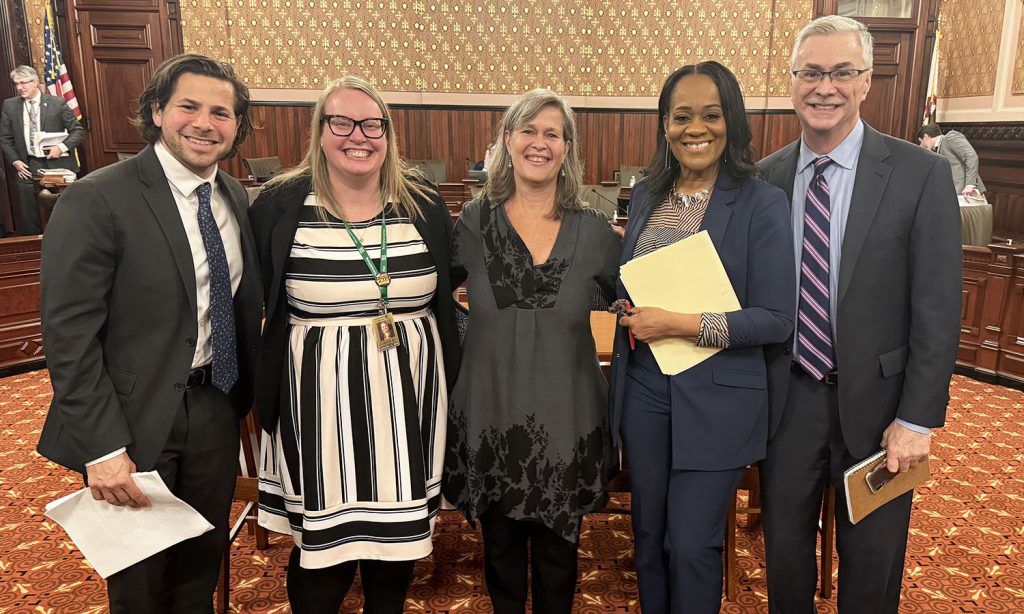
PCC Senior Manager of Policy and Research Mike Abrahamson testified before the Illinois State Senate about the recommendations from the Commission on Equitable Public University Funding.
Read his remarks in full below:
We have a once-in-a-generation opportunity to fix funding for Illinois’ public universities. State appropriations have been cut 46% since 2000 (even considering recent increases), shifting costs to students, particularly pricing out those who can least afford it. That has led to the largest enrollment declines of any state in the country, concentrated at the 4-year universities that enroll more students from low-income backgrounds and students of color with enrollment decreasing by 15,000 students from 2012 to 2022.
With less revenue coming in, universities have been limited in how they can serve students who need more resources to enroll and complete, and so we see access and graduation rates stratified by income, race and rurality. And this has been exacerbated by how we’ve doled out our limited state appropriations, which has been done without regard to the needs of students or institutions.
Less and inequitably distributed funding from the state meant that universities had to collect more revenue from their students, and tuition and fees rose for years before leveling off around 2019. Around that time Illinois students from low-income backgrounds paid among the highest costs in the country to go to our public universities – a student would pay twice as much to attend an Illinois university than they would at a similar university in a neighboring state.
Though universities have worked hard to not raise prices over the last five years with help from some additional appropriations from the state, an infusion of support is still needed to make universities affordable and ensure they can equitably and adequately serve their students.
The SB 815 Commission on Equitable Public University Funding has worked on this problem for years. That has now culminated in recommendations that would bring us from essentially having no formula for distribution to one that would fund universities based on what they need to thrive and then hold them accountable for doing so in ways that we’ve never seen in Illinois or even around the country.
This model would ramp up state investment over 10-15 years to an additional $1.4 billion, bringing annual university appropriations back to around where they were in the early 2000s. This new approach would drive dollars based on student need with 62% of that funding specifically given to support increasing equity in access and completion.
We estimate that by the time the formula is fully funded, the combination of increased enrollment and improved graduation rates will have resulted in tens of thousands more Illinoisans earning degrees, and they will pay billions more in lifetime state taxes. For each of those additional graduates, a degree is life-changing; it’s worth $1.2 million in lifetime income, not to mention its impact on generational wealth, improving health outcomes, and lowering the chance of involvement with the justice system. These degrees are more important than ever for the state’s economy. By 2031, 70% of Illinois jobs will require a postsecondary credential and more than half of new jobs will require a bachelor’s degree.
This is true in communities throughout the state, as graduates contribute $278,000 more to their local economies. Not only are bachelor’s degrees increasingly in demand in rural communities, but having better-educated residents can stave off population declines in these areas. This formula will not just ensure that the state’s economy grows, but that it does so equitably. We owe it to our students and the future of our state to come together and make this proposal a reality.

